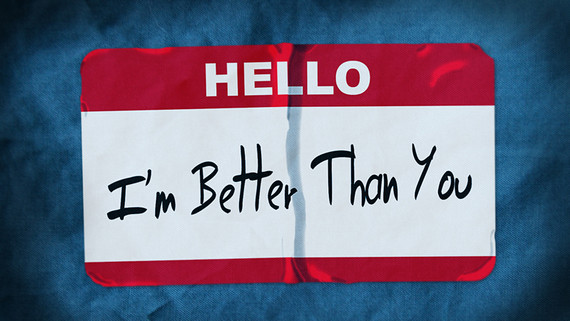Does your company strive and strain to be better than your competitors? To Rise above your competition? To outshine the company next door? If you do, then you are not alone, and I would even say that this is a normal, healthy feeling for your company. But as business owners and managers, we must be careful that we do not fall into the “be better” trap. This trap that has us pitted against rival companies can potentially cause us to ignore our customers wants and needs in the vain effort of trying to outperform our competitors. So are you a “be better” kind of company? Take the following test.
Give yourself a score of 1-5 on each of the following six descriptions. The higher your score, the more likely you are a “be better” company.
- Lately, customers seem to select only according to price.
- Customers no longer value our sales force./li>
- Our new services and products are copied within months or have been copied from other competitors by us.
- Customers don’t attach any benefits to our company’s brand.
- Marketing and innovation play second fiddle to operations.
- Our sales people can’t articulate what distinguishes us from competitors.
So how did you do? For those of you “be better” companies, let’s look at a couple of the potential causes. One potential problem is that you may be focusing too much on refining your operations, trying to standardize things a bit too much. Now don’t get me wrong, standardization is very important and necessary, especially for small businesses. It is critical for growth that you have a system for doing business. But the problem lies when all of our efforts are placed in improving our operation and little to no effort is placed into innovation. To quote the Terrill and Middlebrooks, “Management falls into a trap – they convince themselves that all of their efforts and investments to improve internal operations and be slightly better than competitors will also produce new value for customers. In reality, customers often respond through their purchasing habits with a bored ‘Who cares?’”
Maybe you are not trying to standardize too much, but perhaps you are trying to emulate your competitors. Customers do not want a better XYZ company; they want something different than XYZ. If you cannot distinguish yourself from XYZ, then your customer is going to make his/her decision based upon price. You must have differentiators! I don’t buy from Chick-fil-A because they have the best chicken nuggets and fries, but because I have the best service experience of any fast food restaurant in the industry. Can your customers say something about you that is different than all of your competition?
So what can you do? Talk to your customers. What do they want and need? What are their hot buttons? What are their pain points? Get to know your customer and the prospects you would like to be your customer. Once you know them, then create services and solutions to meet their needs.






